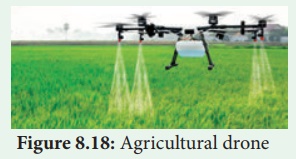Chapter: 12th Botany : Chapter 8 : Environmental Issues
Environmental Impact Assessment (EIA)
Environmental Impact Assessment (EIA)
Environmental Impact Assessment is an environmental management
tool. It helps to regulate and recommend optimal use of natural resources with
minimum impact on ecosystem and biotic communities. It is used to predict the
environmental consequences of future proposed developmental projects (example:
river projects, dams, highway projects) taking into account inter-related
socio-economic, cultural and human-health impacts. It reduces environmental
stress thus helping to shape the projects that may suit local environment by
ensuring optimal utilization of natural resources and disposal of wastes to
avoid environmental degradation.
The benefits of EIA to society
·
A healthier environment
·
Maintenance of biodiversity
·
Decreased resource usage
·
Reduction in gas emission and environment damage
1. Biodiversity Impact Assessment (BIA)
Biodiversity Impact Assessment can be defined as a decision
supporting tool to help biodiversity inclusive of development, planning and
implementation. It aims at ensuring development proposals which integrate
bio-diversity considerations. They are legally compliant and include mechanisms
for the conservation of bio-diversity resources and provide fair and equitable
sharing of the benefits arising from the use of bio-diversity.
Biomonitoring
The act of observing and assessing the current state and ongoing
changes in ecosystem, biodiversity components, landscape including natural
habitats, populations and species.
An agricultural drone is an unmanned aerial vehicle applied to
farming in order to help increased crop production and monitor crop growth.
Agricultural drones let farmers see their fields from the sky. This bird’s
eye-view can reveal many issues such as irrigation problems, soil variation and
pest and fungal infestations. It is also used for cost effective safe method of
spraying pesticides and fertilizers, which proves very easy and non-harmful.

Bio-diversity impacts can be assessed by
·
Change in land use and cover
·
Fragmentation and isolation
·
Extraction
·
External inputs such as emissions, effluents and chemicals
·
Introduction of invasive, alien or genetically modified species
·
Impact on endemic and threatened flora and fauna.
Related Topics